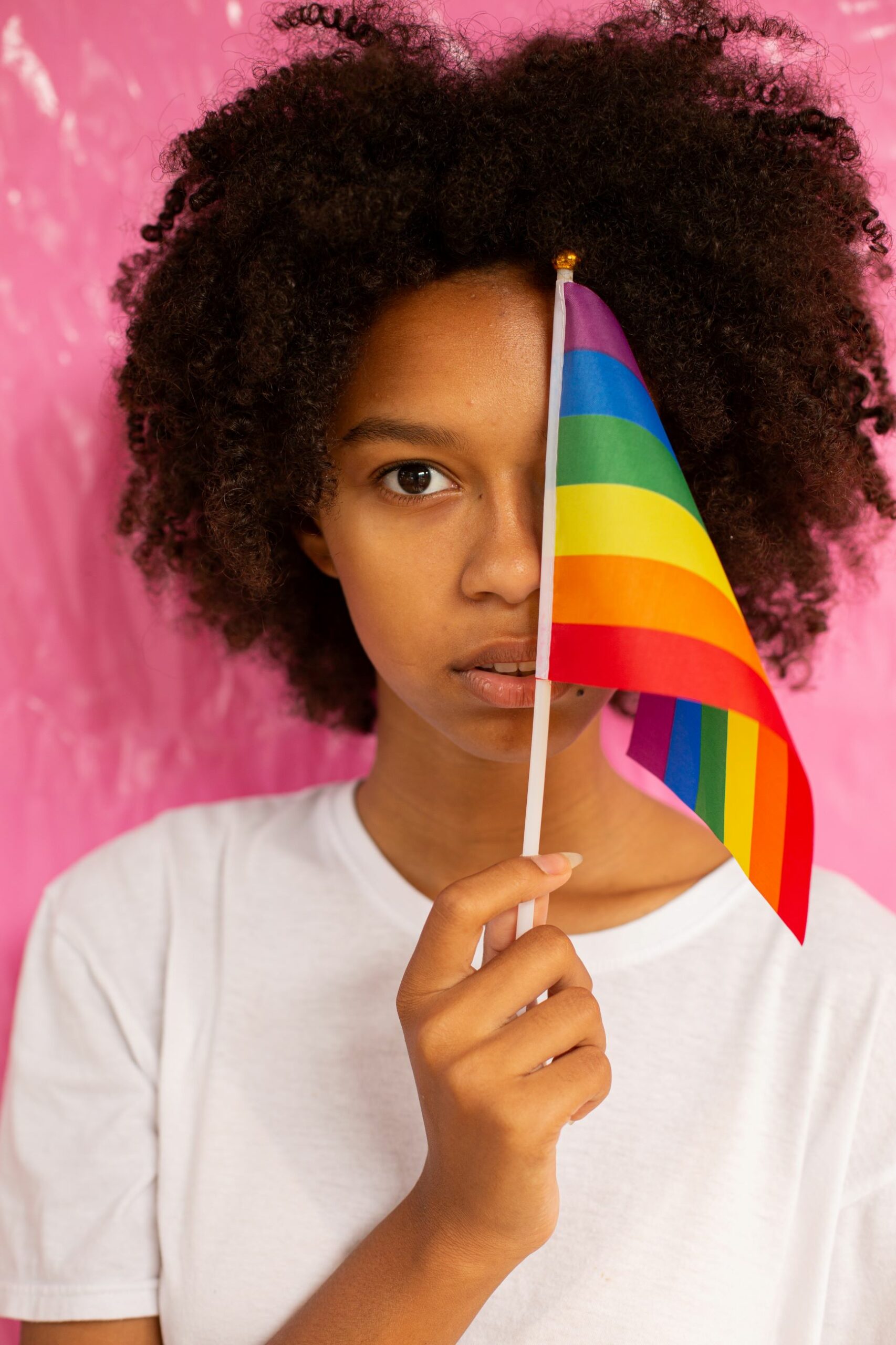While pride month just ended, I wanted to highlight the importance of being an advocate for the LGBTQ+ community, especially LGBTQ+ youth. The primary source I’ll be referencing is The Trevor Project. If you are unaware of this resource, I encourage you to check them out! They are a nonprofit organization that’s number one mission is to end suicide among LGBTQ+ young people. They are a great resource that also offers various LGBTQ+ resources (connection to local supports, providers, crisis lines), research, and ways to advocate for the LGBTQ++ youth community.
 The data presented by the Trevor Project is based on data collected by the CDC. The data they provide is alarming, and it revealed that a staggering 48% of bisexual youth – that’s nearly half, seriously considered suicide within this last year. What’s even more heartbreaking is that 27% attempted it. When we look at gay or lesbian youth, the numbers aren’t much better – 37% seriously considered attempting suicide, and 19% actually attempted it. When we compare these numbers with those of straight youth – where 14% seriously considered attempting suicide and 6% attempted, the difference is apparent. The data also suggests there are even more difficulties for transgender and nonbinary youth. The data shows that they’re more likely to deal with depression, suicidal thoughts, and even suicide attempts than their cisgender and straight peers – and this includes others in the LGBTQ+ community. To put numbers to it, a study by The Trevor Project discovered that these youth were two to two-and-a-half times more likely to be grappling with these issues.
The data presented by the Trevor Project is based on data collected by the CDC. The data they provide is alarming, and it revealed that a staggering 48% of bisexual youth – that’s nearly half, seriously considered suicide within this last year. What’s even more heartbreaking is that 27% attempted it. When we look at gay or lesbian youth, the numbers aren’t much better – 37% seriously considered attempting suicide, and 19% actually attempted it. When we compare these numbers with those of straight youth – where 14% seriously considered attempting suicide and 6% attempted, the difference is apparent. The data also suggests there are even more difficulties for transgender and nonbinary youth. The data shows that they’re more likely to deal with depression, suicidal thoughts, and even suicide attempts than their cisgender and straight peers – and this includes others in the LGBTQ+ community. To put numbers to it, a study by The Trevor Project discovered that these youth were two to two-and-a-half times more likely to be grappling with these issues.
Thankfully, there are ways we can influence these numbers and decrease LGBTQ+ youth risks for suicide. The CDC, as well as The Trevor Project, and Newport Academy (a mental health healing agency) pose data and suggestions on ways to do so, and here are a few:
Acceptance
Data shows that having just 1 accepting adult can lower the risk of suicide in an LGBTQ+ by 40%, which is close to half of the risk of a youth that does not have acceptance. Additionally, the power of community comes into play.
 Support
Support
The CDC suggests incorporating programs such as clubs and community outreach with trained mentors, trusted adults, or teachers to LGBTQ+ youth to increase connectedness. The Trevor Project reports that transgender and nonbinary youth who reported gender identity acceptance from adults and peers had significantly lower odds of attempting suicide in the past year. Ultimately, when LGBTQ+ youth are part of a place where people truly accept them, they’re much less likely to attempt suicide.
Family
Acceptance and support can, quite literally, save lives. And we can’t forget the role of family. Newport Academy encourages parents to communicate often about gender identity and sexual orientation with their child, as it helps them share their feelings and can have a stabilizing effect. LGBTQ+ youth who feel high support from their family attempt suicide at less than half the rate of those who only feel low or moderate support. This is a reminder of the vital role family plays in making LGBTQ+ youth feel loved and accepted.
So, what’s the bottom line? Supporting, accepting, and advocating for LGBTQ+ youth is a lifeline. It’s about giving LGBTQ+ youth the chance they deserve to live a healthier, happier life. It’s about us stepping up and creating an environment where they’re able to be radically genuine, safe, loved, and radically accepted for who they truly are. The numbers speak volumes: when we show up for our LGBTQ+ youth, they’re less likely to struggle with mental health issues and more likely to Live a Life Worth Living. That’s the world I want to contribute to. Let’s show up for them, every day, in every way we can.
About the Author
Alyssa Eichhorn (she/her), M.A., LPCC-S, is a Licensed Professional Clinical Counselor that specializes in dialectical behavior therapy. Alyssa works with all ages in a radically genuine and nonjudgmental setting to help individuals identify more effective and balanced behaviors to create a life worth living. Alyssa provides a directive and warm approach with her clients to facilitate solutions, growth, and change where they want it. Click Here to learn more about Alyssa’s experience and therapeutic style.
Sources:
www.newportacademy.com/resources/mental-health/lgbt-suicide-rates/

